|
|
|
CCNYM Projects
|

|
|
|
Wearable Audio Video Eye System (WAVES)
|
|
|
Based on the 2002 world population, there are more than
161 million visually impaired people in the world today, of which 37
million are blind. The goal of WAVES project is to explore and develop
computer vision-based assistive technologies for visually impaired persons
to understand the surrounding environment and to form mental
representations of that environment by using wearable sensors. Our research efforts focus on two threads: 1) computer
vision-based technology for scene understanding including context
information extraction and recognition, stationary objects detection and
recognition, moving object detection and recognition, and dynamic
environment change adaption; and 2) user interface and usability studies
including auditory display and spatial updating of object location,
orientation, and distance, and environment changes.
For
more details, please come back later.
|
|
|
Automatic
Target Detection, Tracking, and Recognition by Airborne Hyperspectral
Imagery
|
|
|
Automatic target detection, tracking, and
recognition in multispectral/hyperspectral imagery is a challenging problem
and involves several technologies such as optical sensor design,
signal/image processing, pattern recognition, and computer vision
algorithms. There are many applications of civil and military applications
include surveillance of ground, ocean, air and space. In this project, we
will also investigate how to extract reliable information from various sensing
situations and design cost-effective sensors.
For more details, please come back later.
|
|
|
Moving
Object Detection and Tracking in Challenge Environments
|
|
|
Moving object detection in environment
with quick lighting changes:
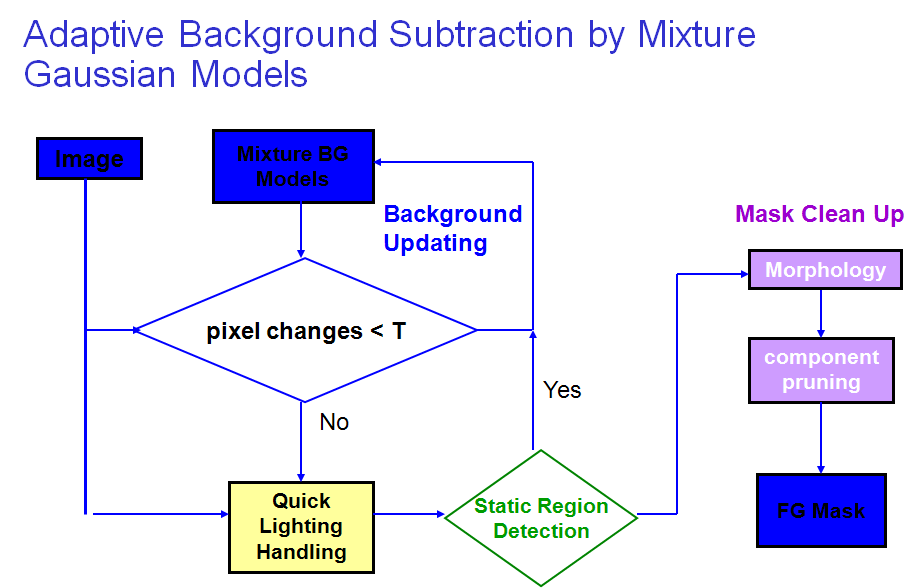
Here are some results of moving object
detection by Gaussian mixture method with (right columns) and without (left
columns) our improvement (click on the image to play demo video):
upper-left image shows the original frame, lower-left image shows the
background, and the upper-right image shows the foreground.
|
Without
our improvement
|
With
our improvement
|
|

|
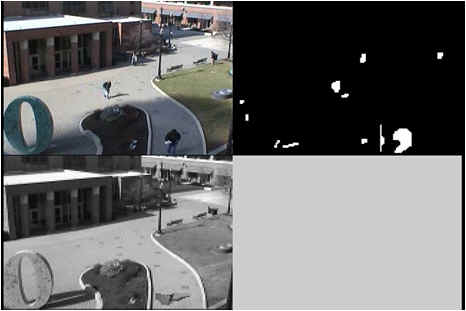
|
|
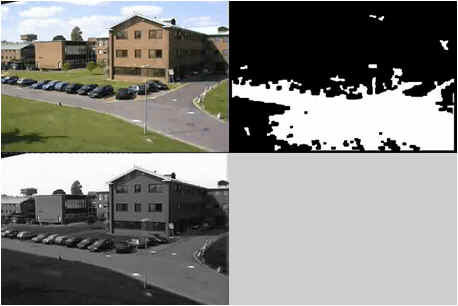
|
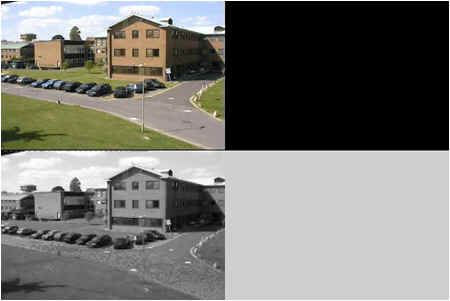
|
|
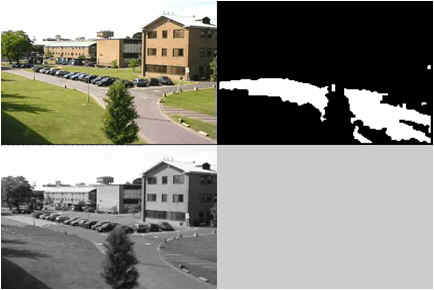
|
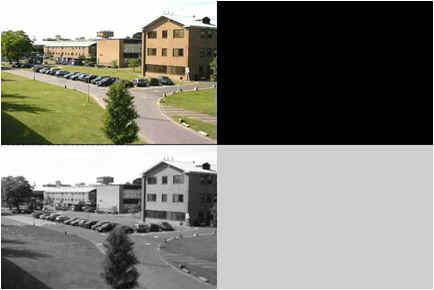
|
Here are more demo videos by comparing our method with
some existing methods [1, 2] to handle quick lighting changes.
Result video from method [1] (click on the image to play demo video):

Result video from method [2] (click on the image to play demo video):
The foreground blobs are displayed on the original image.

J. Connell, A.W. Senior, A.
Hampapur, Y.-L. Tian, L. Brown, and S. Pankanti, “Detection and tracking in
the IBM PeopleVision system”, in IEEE ICME, June 2004.
Y. Tian, Max Lu, and Arun Hampapur,
“Robust and Efficient Foreground Analysis for Real-time Video
Surveillance,” IEEE CVPR, San Diego. June, 2005.
To handle slow moving/stopped objects, we create a
feedback mechanism that allows interactions between BGS and tracking in the
same framework of background subtraction. The following videos demonstrate
the BGS and tracking results with/without the interaction.
Result videos with/without BGS and Tracking
interaction (click
on the image to play demo video): upper-left: the original frame;
upper-right: background image; lower-left: foreground image; and
lower-right: tracking output.
|
Without Interaction
|
With Interaction
|
|

|

|
Back to top
|
|
|
|
|
Intelligent Video Activity Analysis
|
|
|
There are large amount data of events and activities for
intelligent video surveillance. The research will exploit the composite
event detection, association mining, pattern discovery and unusual pattern
detection by using data mining.
For
more details, please come back later.
Back to top
|
|
|
Facial
Expression Analysis in Naturalistic Environments
|
|
|
The research of facial expression analysis in naturalistic
environments will have significant impact across a range of theoretical and
applied topics. Real-life facial expression analysis must handle head
motion (both in-plane and out-of-plane), occlusion, lighting change, low
intensity expressions, low resolution input images, absence of a neutral
face for comparison, and facial actions due to speech.
For
more details, please come back later.
Back to top
|
|
|
IBM
Smart Surveillance Solutions
|
|
|
Back to top
|
|
|
|

|